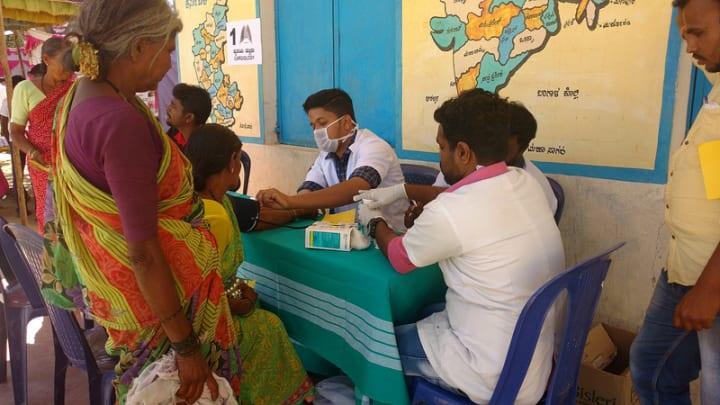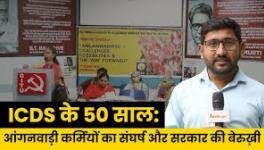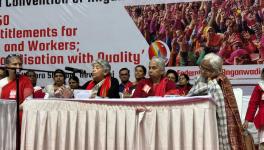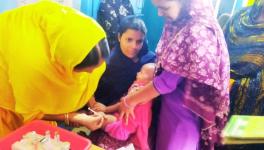Janta Parliament: MPs, Health Activists Demand Right to Healthcare for All, Pass 18 Key Resolutions

Image for representational use only.
An online session on health conducted by the Janta Parliament on Monday demanded the right to healthcare for all citizens. The initiative, envisioned as a virtual People’s Parliament, also put forth 18 resolutions agreed upon by over 330 health professionals, health activists and concerned citizens.
The session was organised by the Jan Swasthya Abhiyan (JSA), Jan Sarokar and several people’s movements from across the country. Five broad themes were discussed – challenges and denials in the government healthcare system during COVID-19, high costs and need for regulation in private hospitals, right of healthcare during and after the pandemic, populations vulnerable to COVID-19 and the democratisation of health systems.
The participants discussed the challenges brought by the COVID-19 pandemic to the lives of people over the past five to six months. “Completely unplanned and hastily implemented policy decisions undertaken during this period exposes complete lack of preparedness and empathy of the state in dealing with any such emergency and brought out the anti-people character of the current government,” the organisations said in a statement.
The statement mentioned that the pandemic has exposed the “weakened public health system” and also the “exploitative nature of the private health sector” as well, resulting in the denial of healthcare and the violation of rights of people, especially vulnerable populations and health workers. It said that there is a need for strengthening the public health systems and making them more democratic with “community oriented accountability and involvement”. The organisations also condemned efforts made by certain sections of society, politicians and the media, for their attempts to “communalise” the COVID-19 pandemic.
K.K. Shailaja, the Minister of Health and Social Welfare of the Government of Kerala, inaugurated the session. She stressed on the need for strengthening public healthcare and on the need to provide healthcare to every citizen. Elaborating on lessons learned while having effectively handled the novel coronavirus in Kerala, she mentioned the need to strengthen healthcare with decentralisation of power and a pro-people outlook.
Vandana Chavan, Rajya Sabha MP from the Nationalist Congress Party (NCP), said that the lack of quality of services at quarantine facilities have been poor, highlighting a lack of empathy and the highhandedness of the powers that be. While emphasising on the right to health for all, she also mentioned the need to address the issue of domestic violence, cases of which have been rising during the lockdown due to COVID-19.
Ravi Prakash Verma, RS MP from the Samajwadi Party, said that the pandemic has exposed the gaps in publich healthcare, and laid emphasis on the need to strengthen and democratise the space. He added that
life-saving drugs should be exempted from patent protections in these times and that efforts to profit out of the misery of the people should be resisted. Backing the JSA’s demand, Congress spokesperson Rajeev Gowda demanded that the government expenditure on health be increased to three percent of the GDP over the next few years.
The list of 18 key resolutions adopted by the Janta Parliament, as mentioned in their statement, is as follows:
· “Make the right to healthcare a justiciable right through the enactment of appropriate legislations both at Centre and State levels. Such legislations should ensure universal access to good quality and comprehensive health for the entire population. These should contribute to the process of making health and healthcare as fundamental rights in the Indian Constitution.
· Increase substantially the public investment on Health care, financed primarily through general taxation, to 3.5% of GDP in the short term, and 5% of GDP in the medium term.
· Expand and strengthen the public healthcare system to ensure quality and availability of health care appropriate to primary, secondary and tertiary level, entirely free of user fees, and provide universal access to the entire range of essential drugs and diagnostics at the public facility.
· Ensuring effective, generalized implementation of the Clinical Establishment Act (2010) immediately, with focus on regulation of rates in the private health sector.
· Universal implementation of the Patient Rights Charter while making it legally mandatory, accompanied by the establishment of an effective Patient Grievance Redressal mechanism.
· Adopting an effective model of public engagement with the private healthcare sector, which would be developed even beyond the current public health emergency and would replace PMJAY.
· Ensure safety and security of healthcare workers involved in occupations involving exposure to COVID-19 and compensate the families of the diseased with Rs 50 lakh.
· Regularise all contractual health workers, including ASHA, Anganwadi and helpers involved in delivery of public health services and ensure that they receive protection from the entire range of labour laws.
· Increase public investment in education and training of the entire range of health personnel.
· Overhaul the National Medical Council (NMC) and the Nursing Council of India along democratic lines.
· Vulnerable populations have special needs that require special measures to ensure that they have access to comprehensive, accessible, quality health services.
· Expand Employees’ State Insurance Scheme (ESIS) to include hitherto excluded sections of the working population in the unorganized sector.
· Provide sex workers with sexual reproductive health (including maternity and safe abortion) services and counseling for mental health issues in one place.
· Ensure comprehensive treatment and care through strengthened implementation and integration of the revised District Mental Health Programme within the National Mental Health Policy.
· Recognise gender based violence as a public health issue and ensure access to prompt rescue and recovery care, comprehensive medical care and sustained support for those affected by it from all backgrounds and in all situations of violence.
· Universalise Community based planning and monitoring of health services at village, block and district levels.
· Effective, prompt and just grievance redressal system needs to be operationalised to handle all complaints and disputes arising from citizens for health care rights, at all levels, starting from the community level.
· The privacy of citizens should not be compromised through official digital health platforms. Central and State Governments should not transfer patient data to any private institution or corporate body.”
Get the latest reports & analysis with people's perspective on Protests, movements & deep analytical videos, discussions of the current affairs in your Telegram app. Subscribe to NewsClick's Telegram channel & get Real-Time updates on stories, as they get published on our website.
























